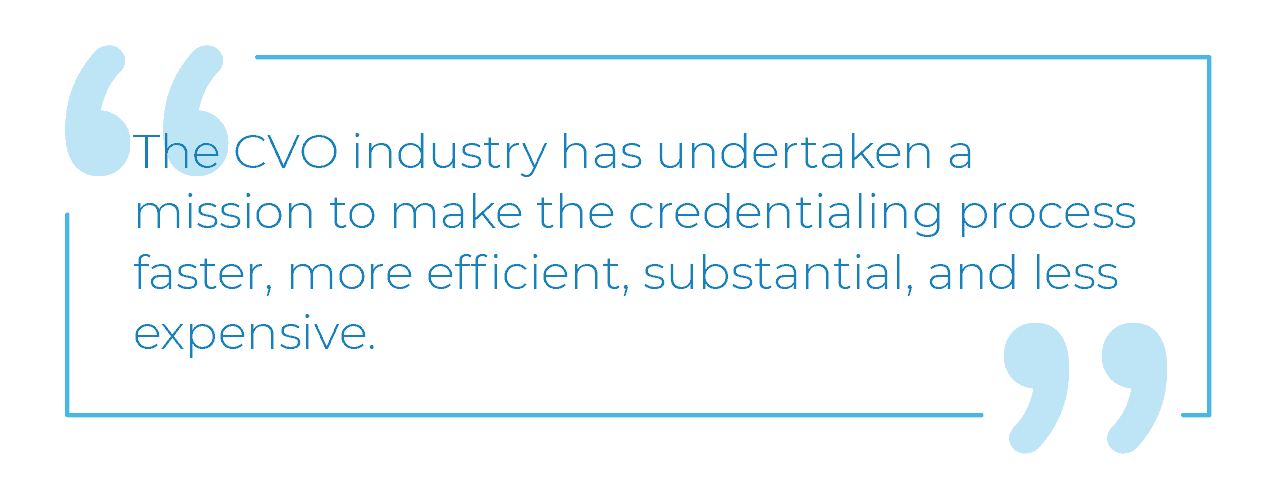The Pulse
NCQA: How It Improves Health Care
Category: Healthcare Industry
IN A NUTSHELL:
- Certification not the same as credentialing
- A CVO helps to expedite the credentialing process
- NCQA provides certification for CVOs
The credentialing process in the health care industry is inevitable for the success and reputation of facilities and also ensures the highest level of patient care.
“Credentials” is a broad term that can refer to a practitioner’s license, certification, or education. In the United States, government agencies grant and monitor licenses and professional organizations certify practitioners.
A certification can either be a prerequisite for licensure or, in some cases, an alternative. To get certified or licensed, practitioners must meet specific education, training, or practice standards.

The credentialing process helps assure both the patient and the facility that the provider is able to work in the health care industry in the capacity and quality that is expected. According to the Joint Commission, credentials can be a letter, badge, or other official identification that confirms somebody’s position or status.
A health care organization obtains primary source verification of the provider’s education, training, certificates and licensure from the original source and maintains the file of information.
Alternatively, an organization can have an agreement for a Credentials Verification Organization, also known as a CVO, to obtain the primary source verification.
A CVO is defined as any organization that provides information on an individual’s professional credentials. Standards set by recognized accreditation bodies, including the Joint Commission, National Committee for Quality Assurance (NCQA), and Accreditation Commission for Health Care (ACHC) mandate a considerable effort to properly evaluate the credentials of health care providers.

It was a collaboration of employers and health insurers that led to the formation of the NCQA, which is now the most widely known accrediting organization for health plans. Its criteria has influenced how plans have functioned, similar to how the Joint Commission has influenced the nation’s hospitals.
The NCQA has 14 credentialing elements that must be met for certification:
- License to practice
- DEA and CDS certificates
- Education and training
- Board certification
- Work history
- Malpractice history
- License sanctions
- Medicare/Medicaid sanctions
- Hospital privileges
- Current malpractice coverage
- Current attestation and disclosure questions
- Office of the Inspector General sanction check
- System for Award sanction check
- Medicare opt-out check
Section 1104 of the Affordable Care Act requires health plans to certify with the Department of Health and Human Services (DHHS) that their data and information systems are in compliance with HIPAA-mandated transaction standards and associated operating rules.
NCQA Case Management Accreditation is an evidence-based program dedicated to quality improvement that evaluates the operations of case management programs in provider, payer or community-based organizations. NCQA-accredited organizations demonstrate that they have the internal processes and service delivery structure to cost-effectively meet the needs of complex patient and improve health or functional capability.
No matter the credentialing method used by an organization, whether it be manually, electronically, or via a CVO–it is critical that the information is confirmed by primary source verification.
Learn more about credential management resources offered by Intiva Health such as our Credentialing Checklist
Related Posts: